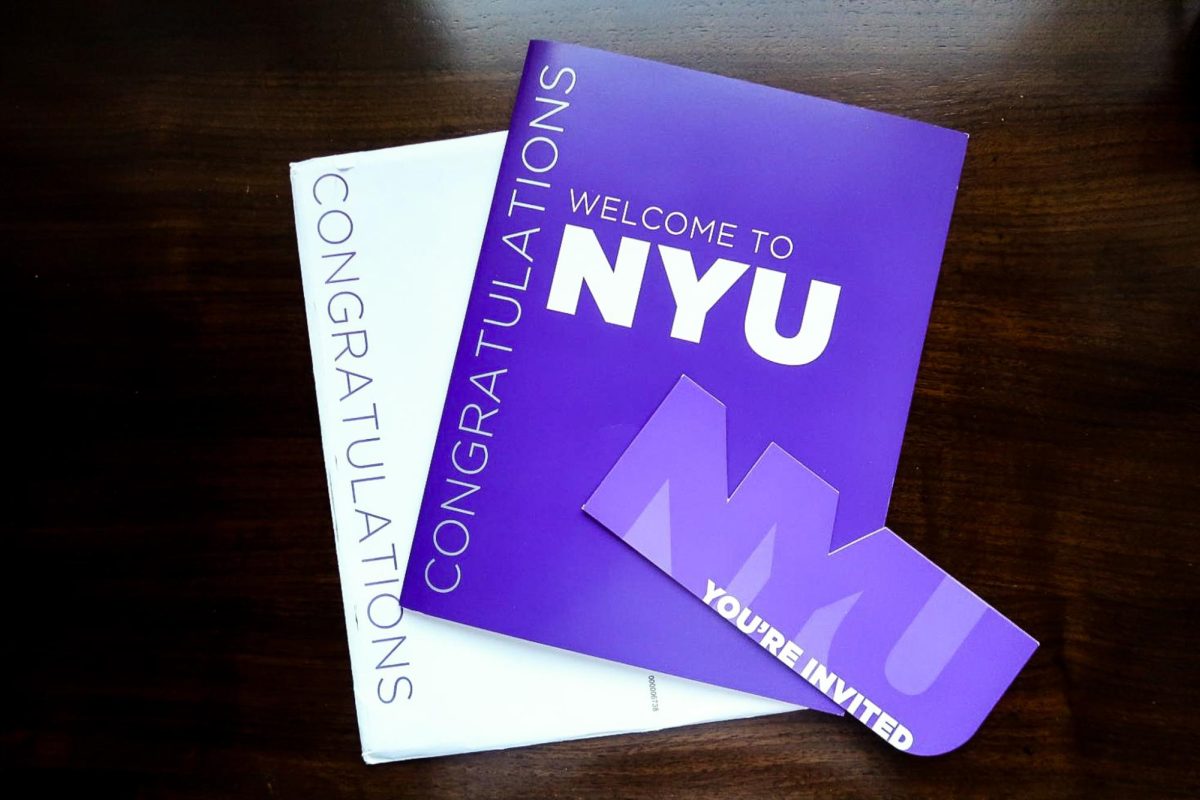New York has more colleges that give legacy preferences than any other state, accounting for roughly one in every seven schools that use this practice nationwide. While this practice remains widespread, NYU has taken steps in the right direction. The university has stated that “being the child of an alum is not a factor in our admissions decision-making,” reaffirming it has not considered legacy status for “some years,” and removing the question about alumni relations from the Common Application. These are meaningful changes, but the push for fairer college admissions must stretch statewide.
In the wake of the Supreme Court’s decision ending affirmative action, the urgency to eliminate a practice that rewards students for their wealth and inherited privilege has never been clearer. To ensure equity over elitism in higher education, New York must take the long-overdue step of banning legacy admissions.
That’s exactly what the Fair College Admissions Act would do. New York state Sen. Andrew Gounardes and Assemblymember Latrice Walker are leading the effort in Albany to eliminate legacy-based admissions. This year, they reintroduced the legislation prohibiting public and private colleges in New York from considering alumni ties in admissions. The act represents a bold and necessary step to leveling the playing field in our higher education system.
So, how would this proposal actually ensure accountability? Some may dismiss it as merely symbolic, but the Fair College Admissions Act is anything but. Fairness in admissions cannot coexist with policies that reward lineage over merit. That’s why the bill pairs a ban on legacy preferences with financial consequences. Institutions that continue to consider legacy status would face fines of up to $50,000, imposed by the New York State Education Department, once the legislation takes effect the following July. It sends a clear message: Institutions that continue to give the children of wealthy donors and alumni an unfair advantage in admissions won’t just be criticized — they’ll be held accountable.
Still, despite growing public support, legacy preferences are still used by dozens of colleges across the state, entrenching privilege behind closed doors. According to Jacquelyn Martell, executive director of Education Reform Now, legacy preferences are still used by 68 colleges in New York. That’s 42% of all colleges and universities in New York, far above the national average of 27%. The impact is far from subtle: Their research shows that being a legacy can boost an applicant’s chances by the equivalent of 160 SAT points. At Columbia University, for example, applicants can list up to five alumni relatives on the Common Application, a policy reinforcing generational privilege.
The consequences of these preferences are both racial and economic. The Institute for Higher Education Policy reports that legacy admissions exacerbate disparities in wealth and opportunity. In contrast, schools that drop legacy preferences see increased Hispanic, Black and Indigenous student enrollment. In recent years, states like Colorado and Virginia have moved to restrict or eliminate legacy-based admissions in public institutions. In 2024, California and Maryland went even further by banning the practice at private institutions.
New York has a chance to strengthen this national movement, and right now, the push for change is gaining strength. A Pew Research Center poll found that 75% of adults now oppose considering legacy status in admissions, a sharp increase since 2019. In Congress, U.S. senators Jeff Merkley and John Kennedy have also introduced bipartisan legislation to ban the practice nationwide.
Still, defenders of legacy preferences continue to recycle familiar arguments. As students, we’ve heard the excuses — legacy preferences protect donations and preserve tradition. But the facts say otherwise. Eliminating legacy preferences does not significantly impact donations, and more importantly, financial interests should never come before fairness. These policies overwhelmingly benefit those who need the least help accessing higher education, while locking out the very students who would gain the most from a degree at a top institution. By upholding legacy admissions, colleges reveal a limited commitment to social mobility and make a hollow promise to advance diversity.
Some might question the timing — why impose financial penalties on universities when higher education is already under assault from President Donald Trump and Elon Musk? The Fair College Admissions Act isn’t about weakening institutions — it’s about demanding better from them. It’s a call to reject the status quo and do what’s right, regardless of the politics. New York has a choice to make — and students are watching.
As President of the NYU College Democrats, I am proud to stand with Gounardes, Walker, the New York Civil Liberties Union and the dozens of organizations in the New York Coalition for Fair College Admissions working to end legacy admissions. At a time when Black and Latino student enrollment is declining at NYU, Columbia, and Cornell University, our student-led advocacy remains central to this movement. We will not give up until this bill gets through committee, is brought to a vote, and is signed into law by Gov. Kathy Hochul.
Momentum is building, but the finish line is still ahead. Since the Supreme Court’s affirmative action ruling, eight colleges in New York have ended legacy admissions. Still, the admissions process remains unfair until all New York’s public and private institutions follow suit. By acting now, New York can lead in ending a practice that grants arbitrary advantages based solely on who your relatives are. It’s time to pass the Fair College Admissions Act.
WSN’s Opinion section strives to publish ideas worth discussing. The views presented in the Opinion section are solely the views of the writer.
Contact Saha Guerrero at [email protected].


























































































































































